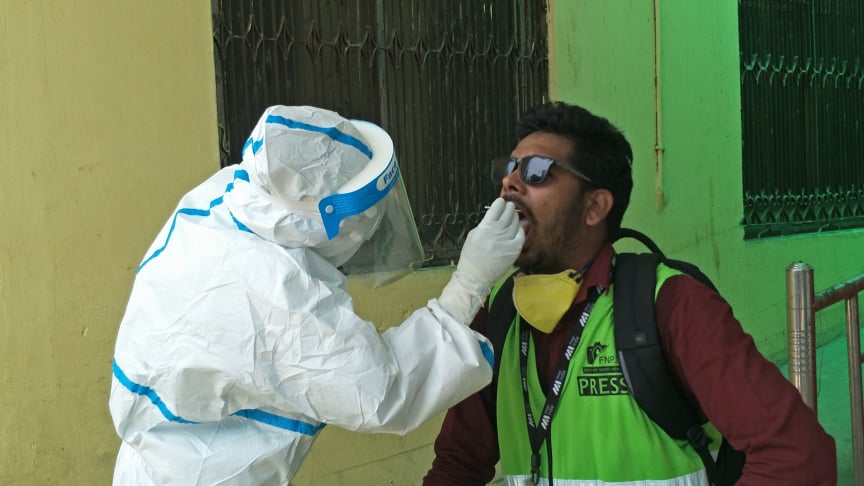‘COVID-19 affects mental health of journalists’
KATHMANDU, AUGUST 21
The findings of a national survey undertaken by Nepal Press Institute and Bournemouth University of the United Kingdom paint a gloomy picture of working journalists, hit hard by the COVID-19 pandemic.
According to the report titled ‘Impact of COVID-19 on Journalism in Nepal’, released by Minister of Communication and Information Technology and government Spokesperson Yubaraj Khatiwada on Wednesday, its findings could be described as a testimony of Nepali journalists’ mental state and experience, and the affect COVID-19 has had on their working.
It records their personal agony, professional challenges, and complexities of their lives and works.
While there has been much discourse on the impact of COVID-19 in Nepal, a focussed portrait of the effects of the virus on journalists has not been presented so far.
“COVID-19 has affected the mental well-being of a majority of journalists in Nepal. As many as 83 per cent of journalists reported increased sense of vulnerability, 75 per cent increased anxiety, and 62 per cent grief, while 25 per cent said they experienced depression,” reads the report.
A total of 74 per cent of journalists have been impacted financially, with 38 per cent having to take a pay cut, and six per cent losing their jobs. As many as 66 per cent reported significant changes in their working hours.
“The pandemic affected newscasts and publishing substantially.
Respondents reported decreased broadcast, video, and audio productions.
The print sector saw reduction of both print frequency and number of pages, and some publications moved to digital-only format,” reads the report. Despite Nepal’s extreme vulnerability to disasters, including a health crisis, most respondents were ill- prepared and ill-trained to face the pandemic.
The survey was conducted online from July 10 to 24, this year. As many as 1,134 journalists, including 218 females, took part in the survey. This included news personnel working in print, online, broadcast and radio, as well as news agencies. The survey had responses from all seven provinces and included both employed and freelance journalists.
“The survey constitutes a baseline for understanding how the virus affected Nepali journalists. It will help decision-makers and planners to craft policies and programmes essential for enabling Nepali journalists to recover, and continue their role of championing public interest,” reads the report.
A version of this article appears in e-paper on August 22, 2020, of The Himalayan Times.






